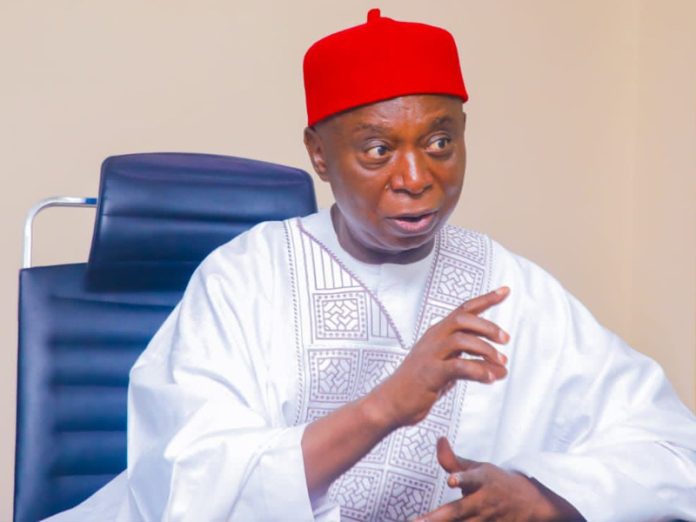
Chairman of the Senate Committee on Reparation and Repatriation, Senator Ned Nwoko (APC, Delta North), has called on the Anioma people of Delta State to fully embrace their Igbo identity and unite with their eastern brothers to build a stronger Nigeria.
Nwoko made the appeal in Asaba while addressing participants at a conference organised by the Igbo Unification Movement in collaboration with the Ndi na Asu Bia Socio-Cultural Organisation, themed “Igbo Bu Ofu” (Igbos are One).
Commending the organisers, he said their work aligns with his long-standing advocacy for Anioma identity and his push for the creation of Anioma State out of Delta North.
The Igbo Unification Movement and Ndi na Asu Bia have become strong voices for the cultural and political unity of Igbo-speaking communities across Nigeria, including Anioma (Delta North), Igbanke in Edo, and other border areas. They argue that reclaiming a collective Igbo identity is key to political strength, cultural revival, and correcting decades of distortion.
“There is no argument about our Igbo-ness. I know the history very well. I know the migration of the Igbo people, and I know clearly that we, the Anioma, are Igbo,” Nwoko said. “The time has come to reverse the old narratives that separated us from our brothers across the Niger.”
Nwoko, who has consistently pushed for the creation of Anioma State, said his agitation is not about politics or ambition but about correcting historical imbalances.
“This is not about APC, PDP, or Labour Party. It is about identity, justice, and fairness. I have no interest in being governor, but I want Anioma to stand tall with its own state, with Asaba as its capital. That way, we also fulfill the dream of Ohanaeze Ndigbo, which has always recognised Anioma as one of the Igbo states.”
Recalling his childhood during the Nigerian Civil War, Nwoko revealed that Anioma communities suffered ethnic cleansing and were forced to deny their Igbo identity to survive. He said the lingering identity crisis from that era must now give way to truth and reconciliation.
He also praised academics and activists, including Professor Abigail Ogwezzy of the University of Lagos, whose research on Anioma linguistics and history has reinforced the people’s Igbo roots.
Highlighting the wider significance of the conference, he said: “The Igbo man is Igbo everywhere, whether from Delta, Imo, or Abia. Just like a Chinese man remains Chinese anywhere in the world, Anioma must rise to embrace its identity. That is the only way we can achieve unity and political relevance.”
Nwoko urged the Igbo Unification Movement, Ndi na Asu Bia, and other cultural organisations to sustain their advocacy, stressing that only through collective effort can the dream of a united Igbo nation and the creation of Anioma State be realised.



